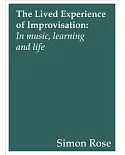Since the 1960s, Swedish musicologist Nils Wallin has been exploring man's biological inheritance and its relationship to music. This book, the culmination of these many years of investigation,
offers a musicological interpretation of recent research in neurophysiology and paleobiology. A model of music as a natural system which serves as a foundation for the understanding of our
musical mind, its capacity, and its phylogenetic roots is proposed. And a unified bio-socio-cultural field theory of music is presented.
It is here argued that music "creates" structures which develop and grow in a manner not unlike the processes controlling the growth of organisms. Thus, music as a system is conditioned by
biological microsystems, as well as superior macrosystems of a more complex nature, such as the flow of consciousness and social, political, and economic systems: a natural synergetic
system.
Wallin's discourse encompasses: 1) the musical consequences of cerebral functional asymmetry; 2) the hierarchic and selective organization of perceptual-cognitive auditory processes; 3)
reticular-limbic responses to musical stimuli interpreted as synapse-modifying mechanisms for long-term motivation and learning, as well as for phylogenetical "learning"; 4) the question of
remnants or retentions with roots in the sound-gestures of other vertebrates of a higher order (and not solely the non-human primates) being active in the innermost structure of music; 5)
vocalization techniques, e.g., the "kolning" technique of the late Paleolithic herding culture of Europe, as paleobiological retention; 6) the epistemological perspective of models of
life-processes as discussed in recent scientific research.





















